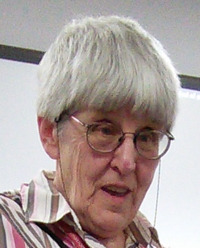Éva Pócs
Genre
More books by Éva Pócs…
“According to the social-anthropological interpretation of the concept, witchcraft is both an ideology that explains human misfortune and an institution that regulates communal conflicts.”
― Between the Living and the Dead: A Perspective on Witches and Seers in the Early Modern Age
― Between the Living and the Dead: A Perspective on Witches and Seers in the Early Modern Age
“The image of a soul that departs from its body is familiar in all European cultures, as is the belief in alter egos, or doubles, that appear during altered states of consciousness. Although the richest sources for this are Germanic and Celtic (from the Middle Ages), and from our perspective the most extensive studies are also based upon those sources,{47} we are actually talking about common Indo-European (and similarly Hungarian) beliefs. In essence these are that humans have a double (to use one of the most frequently applied European terms, "shadow"; also ancient Nordic fylgja and Gaelic co-choisiche, and so forth) that can detach from, leave, or during a trance be sent by its owner, and after death live on as a dead soul. It can have physical and spiritual (soul) variants: the material variant being the "second body," an exact physical replica of the human; and the spiritual variant being a phantom body, a haunting figure visible during dreams or trances. It has permanent "escorting soul" variants too; it can also fulfill the role of a "fate soul.”
― Between the Living and the Dead: A Perspective on Witches and Seers in the Early Modern Age
― Between the Living and the Dead: A Perspective on Witches and Seers in the Early Modern Age
“From the Celts to the people of the Baltic, the outlines of a common Indo-European inheritance seem to emerge. This is connected to the cult of the dead, the dead bringing fertility, to sorcery, and shamanism in relation to the different gods of the dead, which are linked to shamanism that ensured fertility by way of the dead.”
― Between the Living and the Dead: A Perspective on Witches and Seers in the Early Modern Age
― Between the Living and the Dead: A Perspective on Witches and Seers in the Early Modern Age
Topics Mentioning This Author
| topics | posts | views | last activity | |
|---|---|---|---|---|
| Goodreads Librari...: Clean up XIV | 1021 | 626 | Mar 21, 2022 05:31PM |
Is this you? Let us know. If not, help out and invite Éva to Goodreads.



















